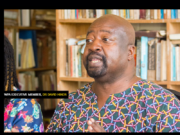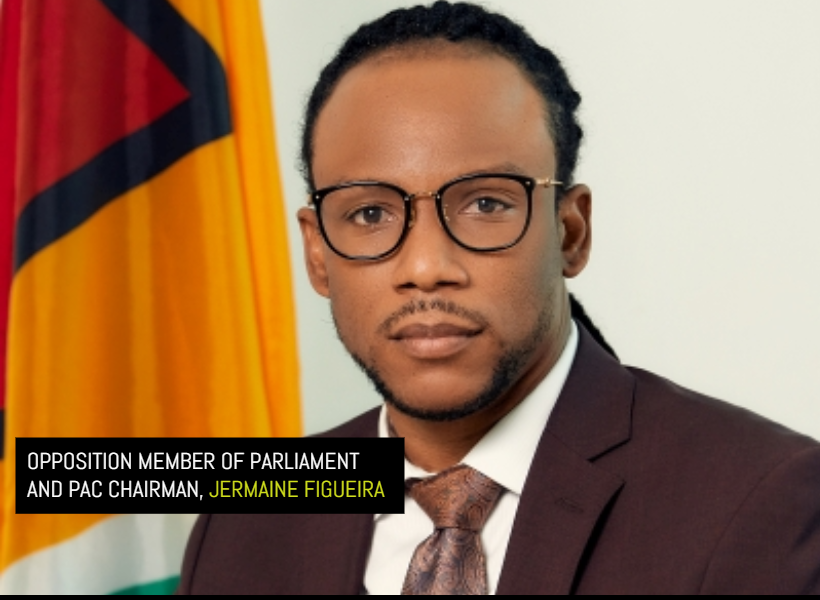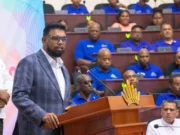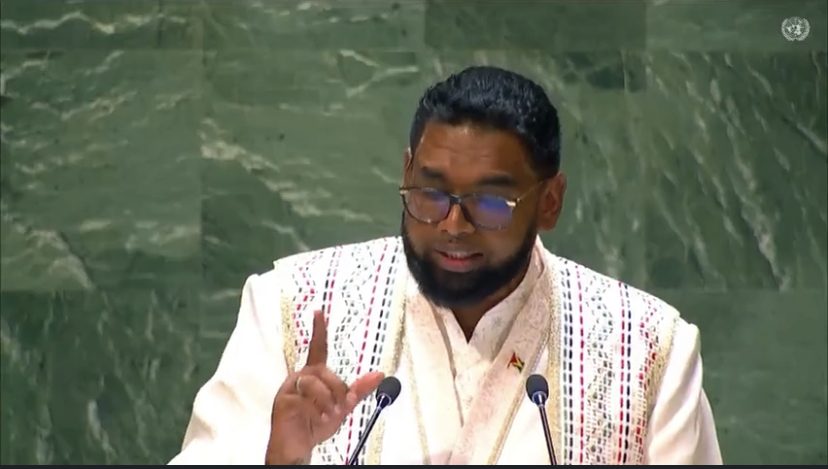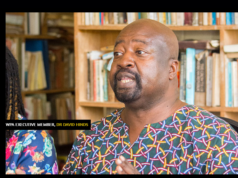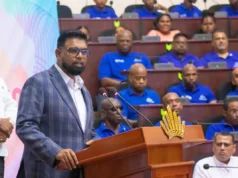In a compelling address at the 78th session of the United Nations General Assembly, President Dr. Irfaan Ali emphasized the urgent need for a pragmatic and balanced approach to achieving the global goal of net zero emissions by 2050.
President Ali opened his speech by acknowledging the severe impacts of climate change, stressing the disproportionate burden on vulnerable nations like Guyana, which is grappling with the harsh consequences of climate phenomena despite having contributed minimally to the crisis.
Highlighting Guyana’s commitment to sustainable development, President Ali spoke about the country’s Low Carbon Development Strategy, which aims to utilize its abundant natural resources for inclusive and equitable growth. Guyana, known for its vast forest cover, has earned 33.4 million tons of carbon credits, which is a remarkable achievement.
The President also announced Guyana’s ambitious goal of relying on over 80 percent renewable energy by 2030, financed in part by revenues from its oil and gas resources. He pinpointed the importance of technology, capacity building, and financing for developing nations to transition to renewable energy sources.
Crucially, President Ali also drew attention to the immense financial challenges associated with achieving net zero emissions. He cited estimates that annual investments must triple to $6.7 trillion by 2050 to meet this target, with a significant portion required for the energy sector. Meanwhile, he said that almost 900 million people worldwide lack access to electricity.
Furthermore, the President underscored the necessity of transitioning to a net-zero world through a combination of measures. He advocated for a reduction in fossil fuel production, scaling up renewables, advancing carbon capture and storage technology, halting deforestation, and implementing energy demand reduction measures.
President Ali also expressed concern over the perceived lack of financing for preserving standing forests, stating that forests might be seen as more valuable when cut down than when left intact. He called for financial mechanisms that appropriately value the environmental services provided by forests, including through the carbon market.
Ali’s call of at the UN General Assembly resonates as a call for realism and balance in the pursuit of net zero emissions by 2050 and highlights the complexities and financial challenges inherent in this global endeavor, emphasizing the need for collaborative and multifaceted solutions.
